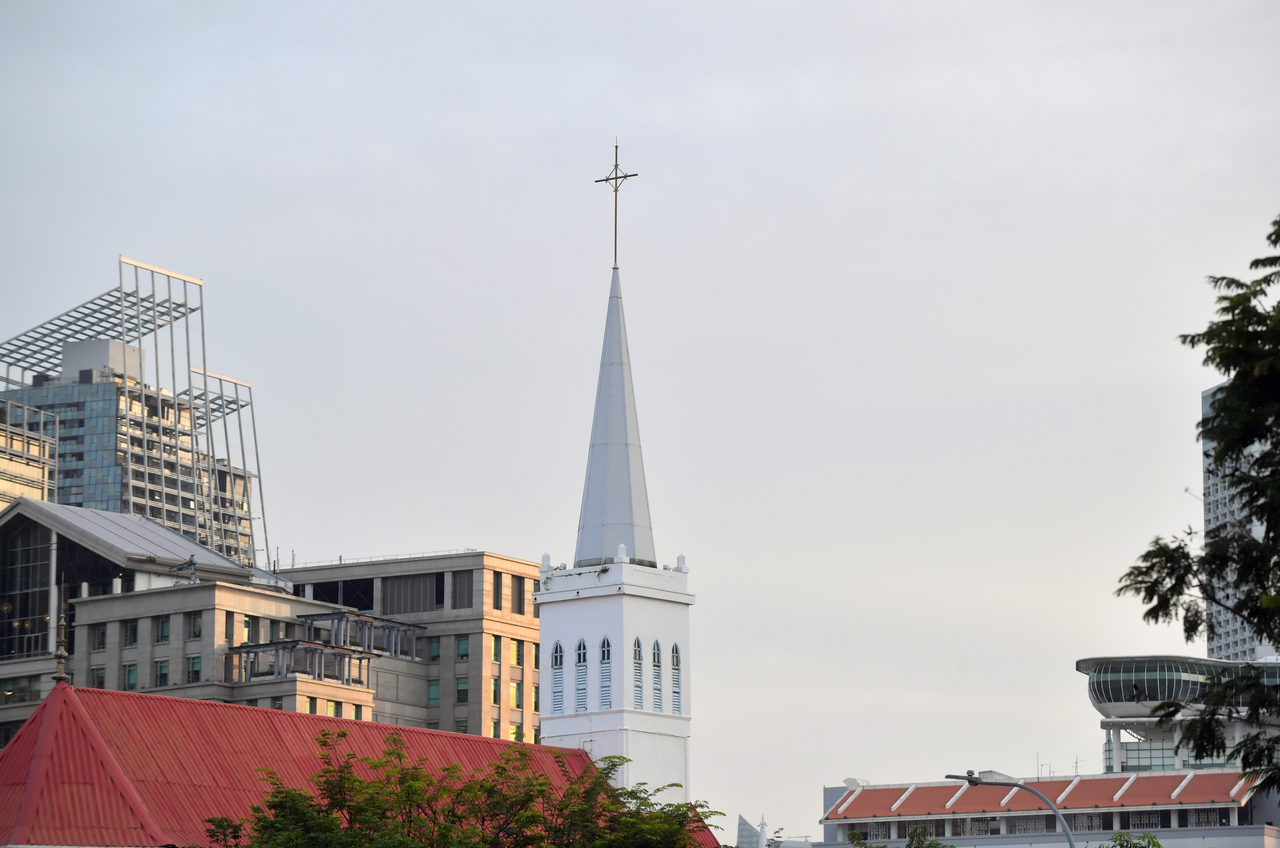Religious groups say they will work with Government on best way forward on Section 377A
Sign up now: Get ST's newsletters delivered to your inbox

The unique compromise to retain the law but not enforcing it proactively, has helped to maintain the balance between the various interests in society.
PHOTO: ALPHONSUS CHERN
SINGAPORE - Several religious groups on Friday (March 4) welcomed remarks by Home Affairs and Law Minister K. Shanmugam on a law that criminalises sex between men, saying that they will work with the Government as it considers the best way forward on Section 377A of the Penal Code.
The statements from the National Council of Churches of Singapore (NCCS), Alliance of Pentecostal & Charismatic Churches in Singapore (APCCS), Roman Catholic Archdiocese of Singapore, Islamic Religious Council of Singapore (Muis) and Sikh Advisory Board come a day after Mr Shanmugam said that the unique compromise of retaining the law, but not enforcing it proactively, has helped to maintain the balance between the various interests in society.
He was commenting on the issue in Parliament after an MP asked him about a recent Court of Appeal ruling which said that Section 377A will stay on the books, but cannot be used to prosecute men for having gay sex.
Mr Shanmugam had said that issues surrounding Section 377A are deeply divisive, and that is why Singapore has taken a "live and let live approach".
He added that public policies, along with legislation, will need to evolve to keep abreast of changes in views in society.
"If and when we decide to move, we will do so in a way that continues to balance these different viewpoints, and avoids causing a sudden, destabilising change in social norms and public expectations," he said.
The NCSS noted that Mr Shanmugam had said the Government's stand on the issue remains unchanged from 2007, when Prime Minister Lee Hsien Loong stated in Parliament that Singapore will uphold "a stable society with traditional heterosexual family values, but with space for homosexuals to live their lives and to contribute to society".
It added that the approach has "worked so far in preventing a deeper wedge from being driven within our society".
Matters relating to sexuality are highly contentious and can be deeply divisive for society if not handled properly, the council said, adding that whether to repeal Section 377A is something to be decided by Parliament rather than the judiciary.
The APCCS noted that under the Maintenance of Religious Harmony Act those from the lesbian, gay, bisexual and transgender (LGBT+) community are designated as a protected class.
The alliance said it hoped this would "go a good way towards addressing the concerns and pains around unjust discrimination".
It added that it is committed to rejecting discrimination in its own community.
Nevertheless, the alliance urged the Government to maintain the status quo, stressing that the family unit should continue to be grounded in a heterosexual marriage where children are raised by a father and a mother.
Any change to Section 377A would lead to adjustments in national policies relating to marriage, family, children, education, media, housing, and more, the APCCS said, and warned that if the family unit is undermined, it would "result in a suite of knock-on effects" including the erosion of societal strength and resilience.
The Roman Catholic Archdiocese of Singapore, meanwhile, said: "We are fortunate that we have a government that places stability and harmony in our multi-religious and multiracial society above any sectarian interests."
It added that the Catholic Church does not condone the marginalisation of those who do not subscribe to its values, including the LGBT+ community.
"Likewise, we ask that others who do not subscribe to our values, also respect our right to exercise our religious beliefs without fear or favour," said the archdiocese.
Muis in its statement welcomed the Government's commitment to maintaining the family norms and values in Singapore, and called for all to be treated with respect and compassion.
It said that it recognises the challenges of maintaining cohesion and harmony amid evolving views and practices in society, adding that it agrees with the Government's emphasis on the preservation of social cohesion.
"We support the Government's approach for continued discussion and will continue to provide our feedback to the government guided by on our norms and values. We will also continue to collaborate with our partners as we work to strengthen our family institutions," said Muis.
The Sikh Advisory Board also agreed with prioritising cohesion and said: "We believe this outcome considers and balances the interests of all segments of society and preserves social harmony and cohesion."
It encouraged all involved to continue a constructive dialogue on the matter.


